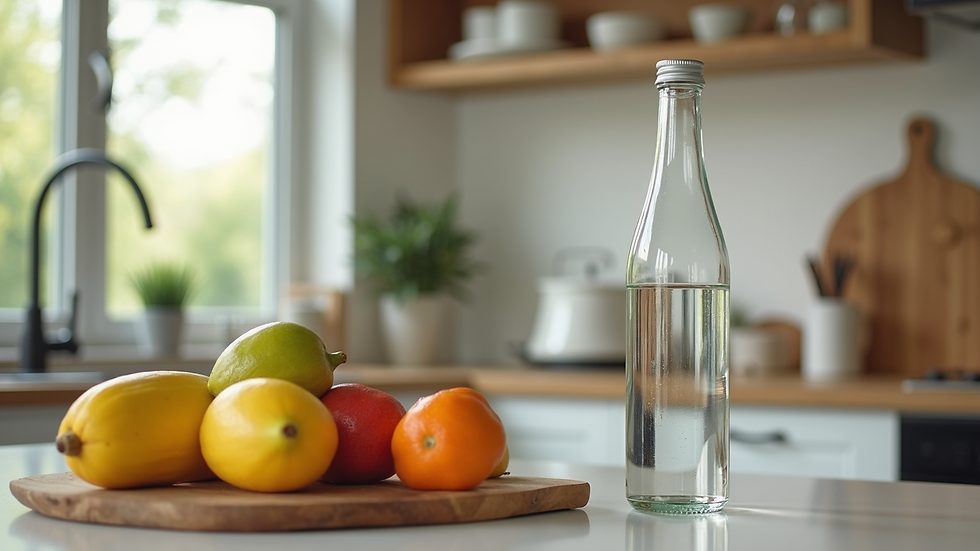How to Prioritize Self-Care in Your Daily Routine
- Mindy Cook

- Aug 11
- 3 min read
Taking care of yourself is essential for maintaining balance and well-being in a busy world. Prioritizing self-care in your daily routine can improve your mental, emotional, and physical health. It helps you recharge, reduce stress, and increase productivity. This guide will walk you through practical ways to make self-care a natural part of your day.
Why Prioritizing Self-Care Matters
Self-care is not a luxury; it is a necessity. When you prioritize self-care, you are investing in your overall health. It helps prevent burnout, improves mood, and boosts your energy levels. Many people neglect self-care because they feel too busy or guilty about taking time for themselves. However, even small, consistent actions can make a big difference.
For example, setting aside 10 minutes in the morning for meditation or stretching can set a positive tone for the day. Drinking enough water and eating nutritious meals also support your body’s needs. When you feel good physically, it’s easier to handle daily challenges.
Self-care also strengthens your emotional resilience. Taking time to reflect, journal, or simply breathe deeply can help you manage stress better. This is why incorporating self-care into your routine is a powerful way to improve your quality of life.

Simple Self-Care Practices to Include Daily
Incorporating self-care doesn’t have to be complicated. Here are some simple practices you can add to your daily routine:
Morning mindfulness: Spend 5 minutes focusing on your breath or setting intentions for the day.
Healthy eating: Choose balanced meals with fruits, vegetables, and whole grains.
Physical activity: Take a short walk, stretch, or do light exercises.
Hydration: Drink water regularly throughout the day.
Digital detox: Limit screen time, especially before bed.
Sleep hygiene: Maintain a consistent sleep schedule and create a relaxing bedtime routine.
These small habits build up over time and create a foundation for better health. You can customize your self-care routine based on what feels right for you. The key is consistency and making it a priority.

How to Destress in 5 Minutes?
Sometimes, life gets overwhelming, and you need quick ways to calm down. Here are some effective techniques to destress in just 5 minutes:
Deep breathing: Inhale slowly for 4 seconds, hold for 4 seconds, and exhale for 6 seconds. Repeat this cycle a few times.
Progressive muscle relaxation: Tense and then relax different muscle groups, starting from your feet and moving upward.
Visualization: Close your eyes and imagine a peaceful place, like a beach or forest.
Stretching: Do gentle stretches to release tension in your neck, shoulders, and back.
Mindful listening: Play calming music or nature sounds and focus fully on the sounds.
These quick methods can help reset your mind and body, making it easier to continue your day with a clearer head. For more ideas on stress management, explore stress relief techniques that fit your lifestyle.

Creating a Self-Care Schedule That Works
To make self-care a habit, it helps to plan it into your day. Here’s how to create a self-care schedule that fits your lifestyle:
Assess your current routine: Identify times when you feel most stressed or tired.
Set realistic goals: Start with small, manageable self-care activities.
Use reminders: Set alarms or notes on your phone to prompt self-care breaks.
Mix activities: Include a variety of self-care practices like physical, emotional, and social care.
Be flexible: Adjust your schedule as needed without guilt.
For example, you might decide to meditate for 10 minutes after waking up, take a walk during lunch, and read a book before bed. Writing your plan down or using a planner can increase your commitment.
Remember, self-care is personal. What works for one person may not work for another. Experiment with different activities and times until you find your rhythm.
The Long-Term Benefits of Consistent Self-Care
When you consistently prioritize self-care, you’ll notice significant improvements in your life. These benefits include:
Better mental health: Reduced anxiety and depression symptoms.
Increased energy: More stamina to handle daily tasks.
Improved relationships: Being more present and patient with others.
Enhanced productivity: Clearer focus and motivation.
Greater self-awareness: Understanding your needs and limits.
Self-care also builds resilience, helping you bounce back from setbacks more easily. It encourages a positive mindset and a healthier lifestyle overall.
By making self-care a non-negotiable part of your routine, you create a foundation for lasting well-being. It’s an investment in yourself that pays off every day.
Prioritizing self-care is a journey, not a destination. Start small, stay consistent, and be kind to yourself along the way. Your body and mind will thank you for it.




Comments